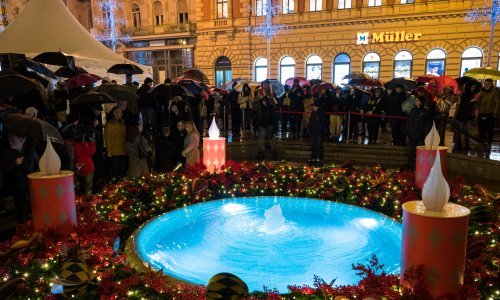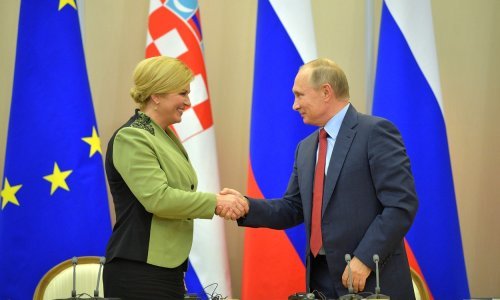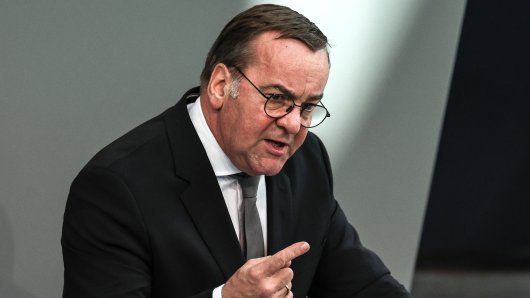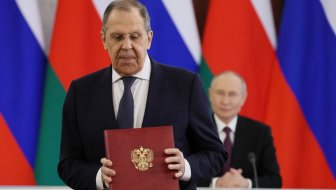Investments come to countries with the best policies to attract them, which means that investing in a country depends primarily on its government, panels held on the second and last day of the "Invest in Croatia" international forum heard in Zagreb on Tuesday.
The panelists, business people from European and world companies, said the Croatian government should shorten and simplify the issue of required documents and ensure for investors a clear and fair procedure, adding that Croatia's upcoming accession to the European Union would help attract investment.
Mark Dooley, a senior director at the Macquarie investment bank, said the anticipated EU accession was crucial for him to invest in Croatia, adding that, despite the crisis, there was plenty of capital in the world looking for the right opportunities and places for sound investment.
Enrique Razon, board chairman of the Filipino company ICTSI, said its investment in a container terminal in the seaport of Rijeka had been one of its better privatisation experiences, as turnover went up 40 per cent in six months and no workers were laid off.
Razon said relations with neighbours were important for investments, as Rijeka was not a port for Croatia alone, but for Hungary, Serbia and south Austria as well. Upgrading the railway is crucial for the further development of the Rijeka-Budapest corridor and it is expected to begin as soon as Croatia joins the EU.
Lukoil vice president Vadim Vorobyov announced an investment of US$ 150-200 million in the region, notably in petrol stations, so that the Russian company's share on the regional market could go up from the current six to 10-12 per cent. He complained, however, that as a foreign investor he could still not compete with national oil companies because they still held the monopoly.
Zarubezhneft deputy general director Alexander Kozhurin said this Russian company, which bought the oil refinery in Bosanski Brod, Bosnia, was interested in expanding to Croatia to build new facilities and an oil transport infrastructure.
We always count on government support in the country we work in and in Croatia our relationship is very good, he said.
Karl Kraus, director of the German energy company RWE East, which built the Plomin II thermal power plant in Croatia and is helping prepare the construction of Plomin III, warned about the excessively slow procedure and administrative hurdles.
In Turkey we built a power plant in three years, while in Croatia it took us five years to transfer a contract from one of our companies to another, he said.
Environmental Protection, Zoning and Construction Minister Branko Bacic said the Croatian government was working on stepping up procedure, since 61 steps are currently necessary to build an energy facility.
Ajit Singh, president of the ACG Worldwide pharmaceutical corporation, which bought Croatia's Lukaps, which exports 95 per cent of its empty gelatine capsules to the EU, said that in order to succeed on the European market, one should manufacture specialised products, as mass producers could not compete with major corporations.
Gaetano Massara, the General Electric director for South Europe, said EU accession would primarily be important because of Croatia's access to a large market. Success on the European market requires integration with the EU and the European economic area and this applies both to Croatia and to the other countries in the region, he added.
A panel on tourism heard that in order to increase investments in Croatian tourism and make them more cost-effective, it was necessary to extend the season from the current three or four to six or seven months of the year and to define a clear strategy for the next 20 years.
Husnu Akhan, CEO of Turkey's Dogus Holding; William Crewdson, CEO of the iO Adria investment fund; Otmar Michaeler, CEO of Austria's Falkensteiner, and Fettah Taminceu, board chairman of the Turkish hotel chain Rixos, whose companies have invested and plan to invest in Croatian tourism, said the government must clearly define development plans to attract more investments in tourism and that they wanted to be part of them.
They said the investment climate in Croatia had improved in recent years, but that there remained issues that the local and central governments had to solve together.
Akhan announced plans to invest in hotels and marinas in Sibenik-Knin County, saying Croatia had the potential to double the number of its marinas (currently 50) and attract richer yachtsmen.
Crewdson said Croatia lacked four- and five-star hotels to have a longer season and richer guests.
Taminceu agreed and suggested building a spectacular hotel that would become a symbol like those in Dubai and some in Turkey. He highlighted the importance of good destination management, saying the private and public sectors should jointly take part in that. He also advocated building more casinos, saying they were very profitable, and developing tourism products outside the summer season, so that Croatia's tourism stopped depending on the warmth of the sea.
The four executives said they wanted to continue investing in Croatia but would be happier if investors were encouraged more and involved more in plans.
Branko Grgic, a state secretary at the Tourism Ministry, said investments in tourism were expected to increase thanks to the law on land for tourism usage, amendments to the zoning law, the establishment of the State Property Management Agency, which will invite bids for the privatisation of 14 state-owned hotel companies, and the new tourist projects Brijuni-Rivijera and Kupari-Srebreno.
Closing the conference, the Deputy Prime Minister in charge of investments, Domagoj Milosevic, said the event had fulfilled all its objectives.
The government has sent a clear message to investors that they are welcome in Croatia and the investors already present in Croatia have clearly told us that they will continue investing, he said.
The investors have asked for equal treatment as domestic investors, which the government guarantees and it is also working on the removal of obstacles to investment, he said.
Milosevic said this forum should launch a campaign to attract investment and that the government would intensify its activities in Europe and elsewhere in this respect.
The conference has confirmed the value of Croatia's geographical position and supported the development of investments in tourism, infrastructure, energy and industry, he said. Asked about its cost, he said the conference should not be viewed as a cost but as an investment.
The two-day event was organised by the Croatian government, with the support of the Croatian Chamber of Commerce, the Croatian Employers Association and the Macquarie investment bank, under the media sponsorship of the Financial Times.




































